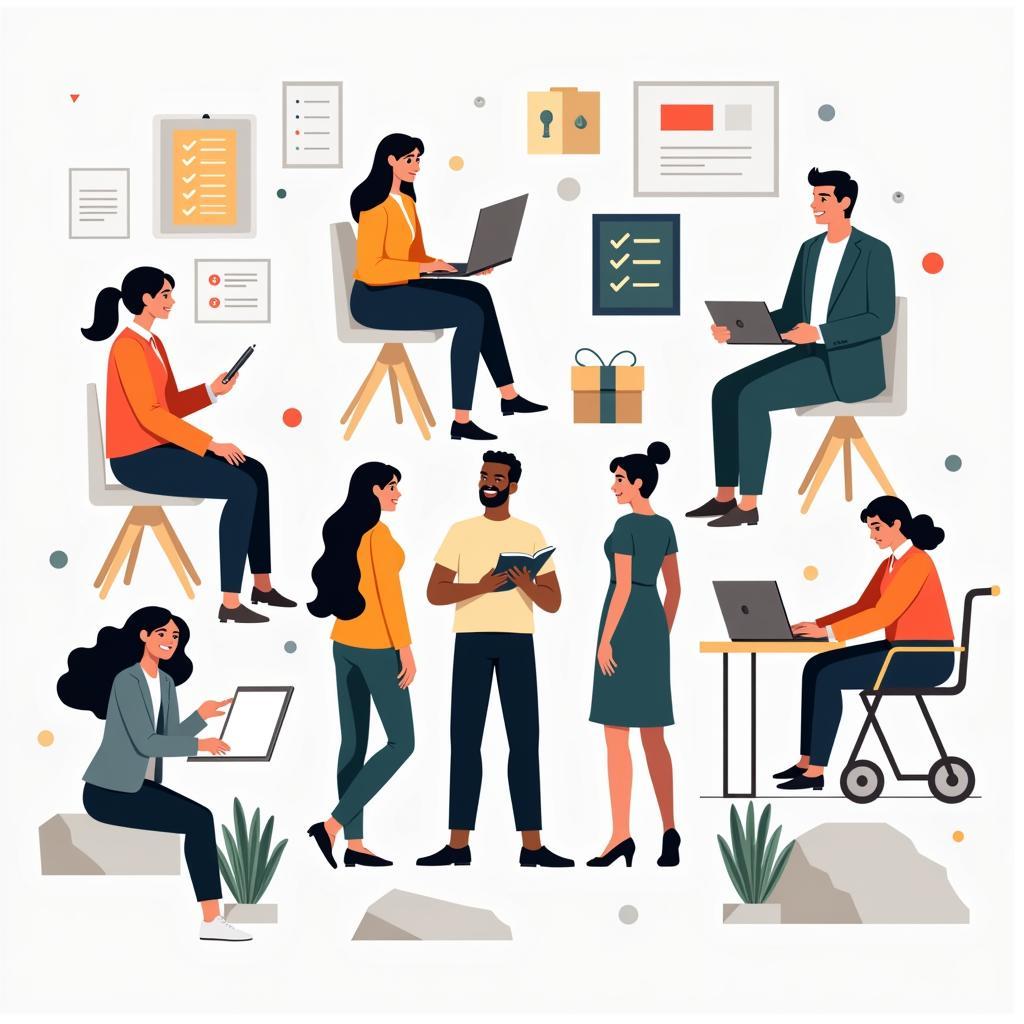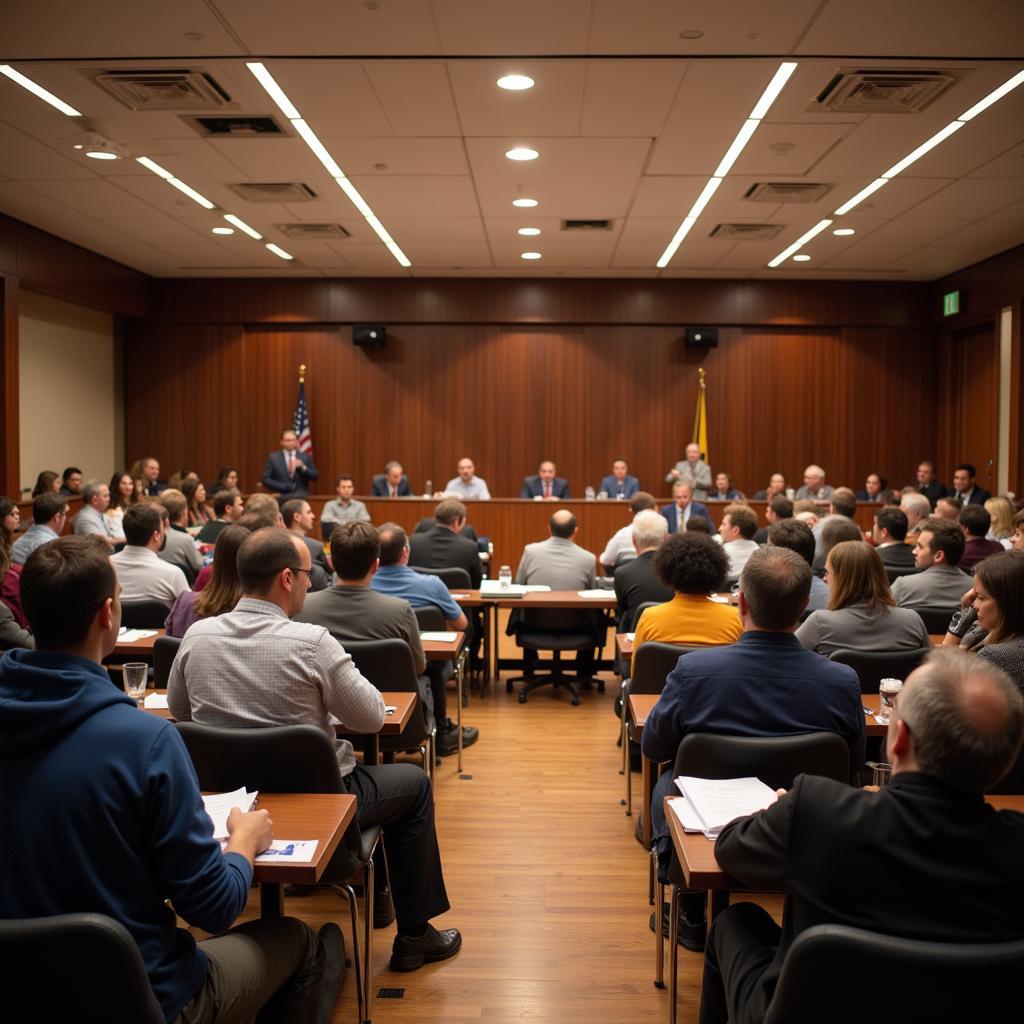Free and equal – these powerful words form the bedrock of a just society. But what do they truly mean, and how can we build a world where everyone experiences these fundamental rights? This article explores the core principles of fairness and equality, examining the structures and values that would shape a truly equitable society.
Building a Foundation of Fairness: Key Principles
A fair society is built on several interconnected principles. At its heart lies the concept of equal opportunity, ensuring that everyone has the same chances to succeed, regardless of their background or circumstances. This means dismantling systemic barriers and creating pathways for individuals to realize their full potential. Crucial to this is access to resources, including quality education, healthcare, and economic opportunities. A fair society acknowledges that everyone starts from a different place and works to level the playing field. Another essential element is justice and accountability, where laws are applied equally and transgressions are met with appropriate consequences, fostering a sense of security and trust. Finally, a fair society values diversity and inclusion, recognizing and celebrating the unique contributions of all its members, leading to a richer and more vibrant community.
A crucial aspect of fairness is ensuring that everyone has access to basic necessities. This means not just food and shelter but also access to healthcare, education, and meaningful work. These are not privileges but fundamental rights that should be guaranteed to all.
 People from diverse backgrounds having equal access to education and job opportunities
People from diverse backgrounds having equal access to education and job opportunities
Addressing Inequality: The Path to a Just World
Creating a truly equal society requires confronting the deep-seated inequalities that exist across many dimensions, including race, gender, socioeconomic status, and ability. This involves acknowledging historical injustices and implementing policies that actively promote equity. For example, affirmative action programs can help address historical disadvantages and create more inclusive opportunities. Furthermore, promoting pay transparency can help close gender and racial pay gaps, ensuring that individuals are compensated fairly for their work.
Beyond policy, cultural shifts are also essential. Challenging harmful stereotypes and promoting empathy and understanding can foster a more inclusive environment. Education plays a vital role in this process, by teaching children about different cultures and perspectives and fostering respect for diversity from a young age.
 A diverse group of people collaborating on a community project, demonstrating inclusion and teamwork.
A diverse group of people collaborating on a community project, demonstrating inclusion and teamwork.
What Would a Fair Society Look Like in Practice?
Imagine a society where healthcare is accessible to everyone, regardless of their ability to pay. Where education is a right, not a privilege, empowering individuals to reach their full potential. Picture a world where everyone has a safe and affordable place to live and access to nutritious food. This is not a utopian dream, but a tangible vision of a fair and equitable society.
In such a society, political systems would be truly representative, ensuring that all voices are heard and that decisions are made in the best interests of the entire community. Transparent and accountable governance would be the norm, fostering trust and participation in civic life.
Free and Equal: A Shared Responsibility
Achieving a free and equal society is not the responsibility of governments alone. It requires the active participation of every member of society. We all have a role to play in challenging injustice, promoting equality, and building a better future for generations to come. By embracing diversity, fostering empathy, and working together, we can create a world where everyone has the opportunity to thrive.
Dr. Anya Sharma, a leading sociologist at the University of California, Berkeley, emphasizes the importance of collective action: “Building a fair society requires a fundamental shift in mindset, from one of individualism to one of collective responsibility. We must recognize that our individual well-being is inextricably linked to the well-being of our communities.”
 People participating in a town hall meeting, discussing community issues and engaging in civic discourse.
People participating in a town hall meeting, discussing community issues and engaging in civic discourse.
Conclusion
Free and equal – these are not just words but powerful aspirations that can guide us towards a more just and equitable world. By embracing the principles of fairness, addressing systemic inequalities, and fostering a culture of respect and inclusion, we can build a society where everyone has the opportunity to live a fulfilling and meaningful life. Free and equal is not just a dream; it is a goal we can achieve together.
FAQ
- What is the difference between equality and equity?
- How can we measure fairness in a society?
- What are the biggest barriers to achieving a fair and equal society?
- What role can individuals play in promoting fairness and equality?
- How can we ensure that future generations inherit a more just world?
- What are some examples of successful initiatives that have promoted fairness and equality?
- How can technology be used to advance the cause of fairness and equality?
Further Exploration
- Explore more articles on social justice and equality on our website.
- Learn about our ongoing projects and initiatives to promote peace and understanding.
- Join our community forum to connect with others who share your passion for a more just world.
Call to Action
When you need support, please contact Phone Number: 02043854663, Email: [email protected], or visit our address: Khu 34, Bac Giang, 260000, Vietnam. We have a 24/7 customer service team.